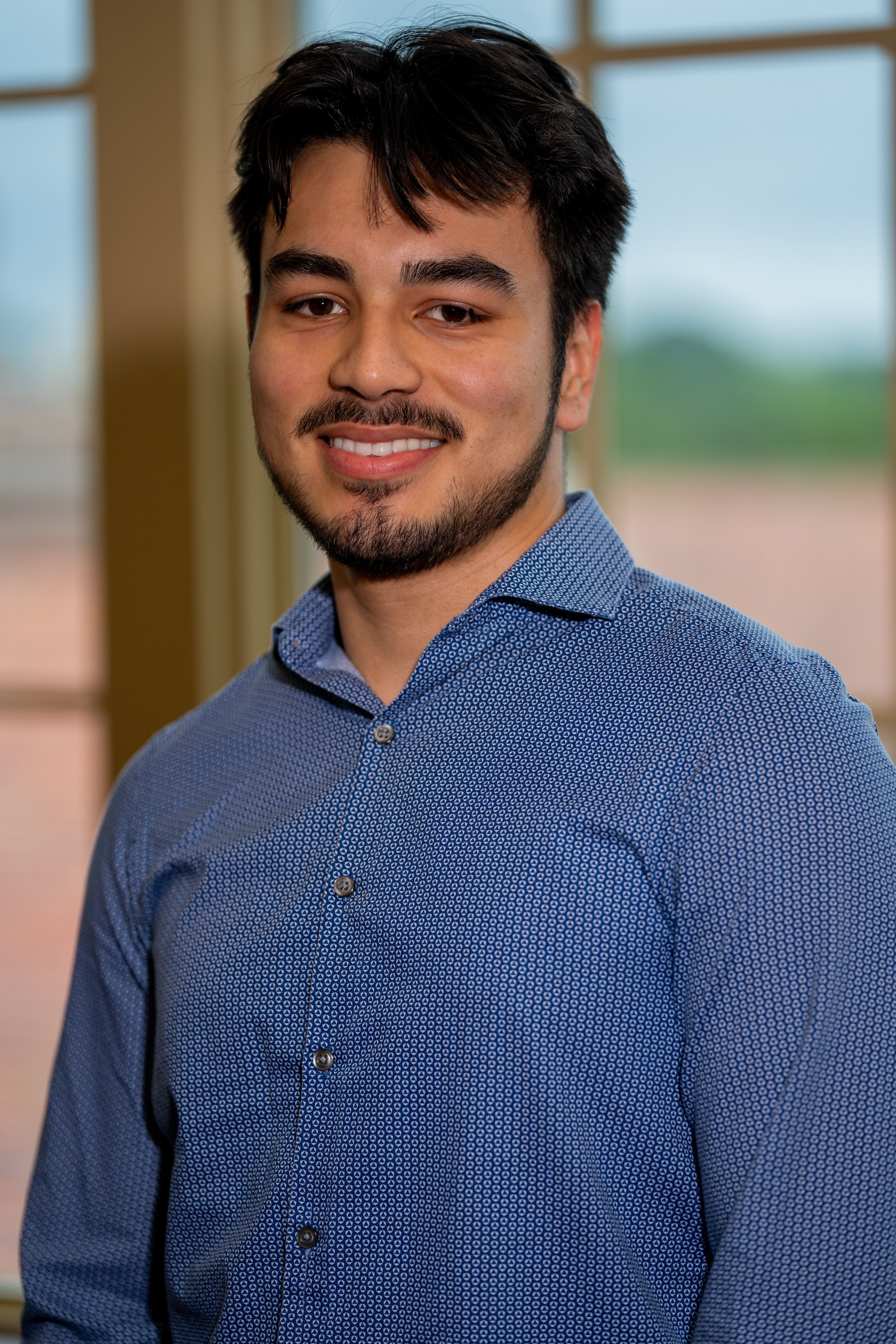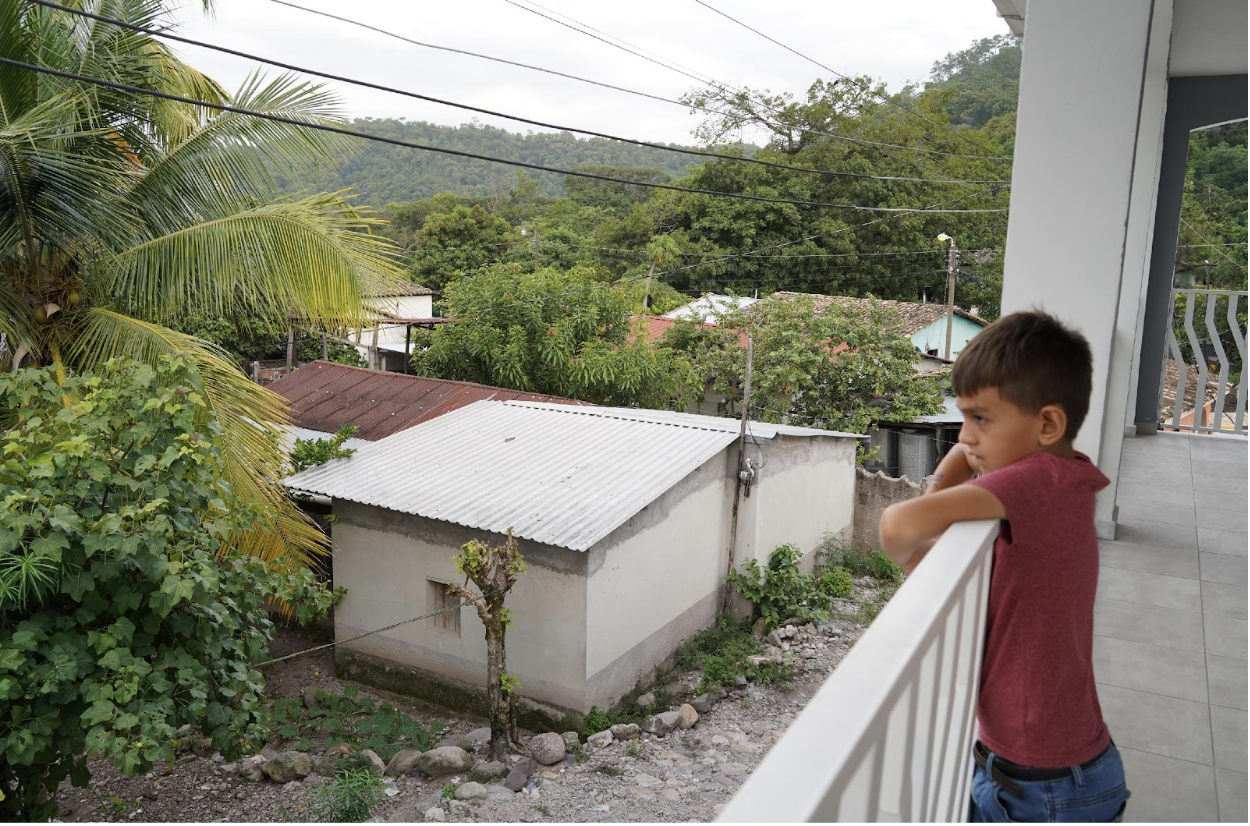Hi! My name is Alexander Sarmiento and I am an undergraduate student majoring in biology with plans to enter medical school. I am a first-generation student and the son of immigrant parents who are both from a rural village called Santa Rita in Honduras. Growing up, my parents knew very little English, and because of this, my parents relied on me for practically every affair that involved speaking or writing in English. Since about the third grade, I have been reading and translating through healthcare plans, explaining and putting together tax documents, and arguing over the phone about bills for my parents. On top of this, I have had to guide myself through many important decisions and transitional stages of my life with very minimal information or instruction from my parents since they knew very little about the “American experience,” like the education system or complex social norms. This meant that every decision I made about my future, especially as a student, relied on my own (obviously limited) knowledge, so I was constantly scouring through any informative material I could get my hands on to make the right decisions on time about things I knew nothing about. In short, I felt as if there was no room for me to just be a kid.

Alexander Sarmiento, Florida State University
Thankfully, I was fortunate enough to be able to visit my family in Honduras almost every other summer, which is where I found my respite. In my younger years, my family and I would sometimes host my birthday there, and it seemed like the entire village would show up. As soon as the invitations were sent out, my grandparents' house and the dirt roads surrounding it were immediately flooded with children of all ages. All of them were there to wish me a happy birthday, smash a pinata, watch me blow out my candles, and enjoy a slice or two of cake. One time, all the children lined the streets of the village center and showered our car with their plushies, welcoming us back into their home. Santa Rita was one of the only places I ever actually felt like a kid, and those memories will continue to stay with me for the rest of my life. My entire life I’ve felt a deep connection to the place that “should’ve been” my home and promised myself to give back to the community that always welcomed me with open arms. As I got older, however, I began to notice the living situation that many of my loved ones were in, which my research aims to improve.

Santa Rita is a small, remote municipality with about four thousand inhabitants spread along the Montaña Santa Bárbara mountainside. Here, the village core and surrounding hamlets have a combined population of nearly four thousand people, mostly subsistence farmers, with few financial and material resources, and hampered by inadequate infrastructures. Every time I’ve visited, I have noticed these barriers to accessing clean and safe water, as well as how it seems that nothing seems to change. For context, when water does come out of the tap when you open it, it is a dark, murky brown color full of sediment and pesticides that leach into it from the farmlands. Other times, the village lacks water due to seasonal droughts that have worsened over the years. The primary sources of water are two local streams, Teoxinte and El Censo, which are fed together into two water tanks that are used to hold and distribute water through the tap system. Teoxinte runs through farmlands, accumulating high amounts of waste and sediment along the way from agricultural runoff that ends up in people’s homes. The other stream, El Censo, is considered the cleaner of the two as the water is gathered immediately where it springs from the earth. Regardless of these factors, both streams of water were rated as simply unfit for human consumption by the Honduran government.
Despite this, people still use this raw and unfiltered water to cook, clean, bathe, and more. Many feel that they do not have a choice in the matter. Those who can often purchase jugs of filtered water, but the rest of the villagers, must make do with whatever they can, usually consuming water without so much as boiling it to mitigate its harm, exposing them to disease. For villagers, especially children, experiencing rashes and stomach pain is an expected part of everyday life in Santa Rita. Even my own grandmother, who has grown “accustomed” to the water, recently suffered from an H. Pylori infection, which can cause stomach ulcers and even cancer. It is a disease known to be contracted from contaminated food and water, meaning it is very likely linked to the poor water quality in the village. Unfortunately, many times in the community, this type of disease goes untreated in order to save money since it is somewhat asymptomatic until much later. Thankfully, she is now much better, but she still relies on the same water which made her sick, like most other people in the village who simply have no other options.
In my research, I hope to make a meaningful change in the quality of life of people living in Santa Rita by upholding their human right to potable water. I aim to achieve this via an increase in the quality, quantity, and accessibility of their water with the funding and time frame I have been allotted for my work. Although higher volumes of cleaner water and increased accessibility are my foremost goals, I operate against the backdrop of human rights. To me, this means making sure, through my ethnographic research under the mentorship of Dr. Joseph Hellweg, that the community can continue to improve their quality of life by understanding the power dynamics and conflicts within the village that may inhibit their progress even after my research is over. Participatory action research methods will be at the core of my qualitative research; they allow the community to generate ideas and solutions on their terms to envision and create more sustainable solutions. I aim to reinforce Santa Rita’s resilience in the case of an emergency or a looming disaster, even after the project is over, such as a hurricane or extended drought, which will likely occur more often in the region due to global warming.
I am incredibly grateful for the opportunity the FSU Center for Undergraduate Research and Academic Engagement and the Tyler Center for Global Studies have entrusted me by selecting me for an IDEA grant, and I look forward to sharing my progress in my research with everyone!
